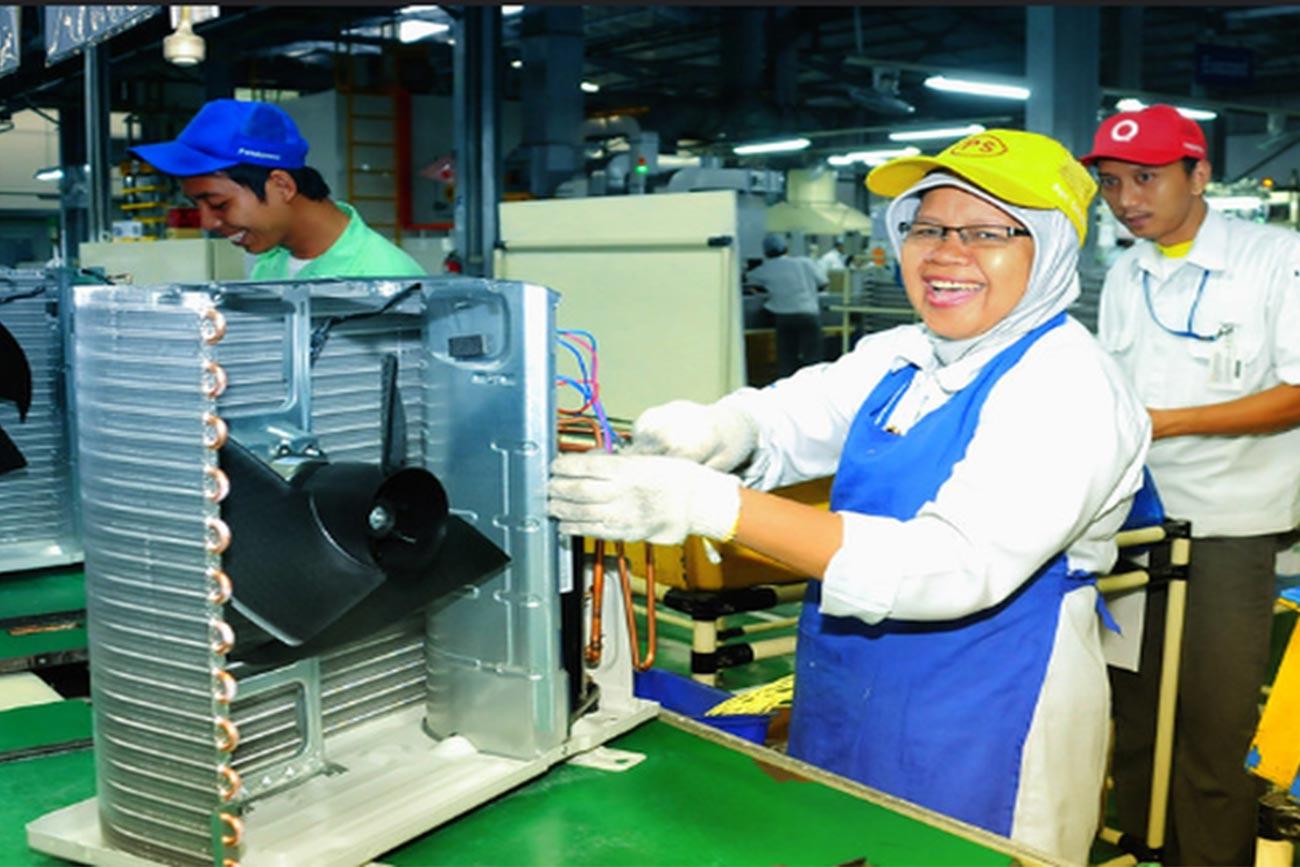Indonesia supports the global movement towards equal pay

Celebrated for first time, the International Equal Pay Day marks the continuous efforts towards the achievement of equal pay for work of equal value
Indonesia, together with the world, is going to celebrate for the first time, “the International Equal Pay Day”, on 18 September. This international day marks the commitment of the United Nations to human rights and against all forms of discrimination, including discrimination against women and girls.
“Given the gender gaps in our labour market today, my Ministry, together with all of our social partners and international organizations, continues to reinforce our joint actions against gender-based discrimination at work. It is time for women and men to be equally appreciated by their talents, work results and competence, not by their gender."
Ida Fauziyah, Minister of Manpower of the Republic of Indonesia
Women are paid less than men globally, with the gender pay gap estimated at 16 percent . Women earn 77 cents for every dollar men earn for work of equal value – with an even wider gap for women with children. These discrepancies in pay have negative consequences for women and their families - a situation that is exacerbated during the COVID-19 pandemic .
The ILO Monitor: COVID-19 and the world of work: 5th Edition , issued in July, found that women workers have been disproportionately affected by the pandemic. The severe impact of COVID-19 on women workers relates to their over-representation in some of the economic sectors worst affected by the crisis, such as accommodation, food, sales and manufacturing. Women also constitute a large percentage of informal sector jobs with lack of health insurance and social protection.
Comparable to the global condition, Indonesian women earn 23 percent less than men. Although more women workers have a college or university degree compared to male workers, higher education has not succeeded in narrowing the gender pay gap. In fact, female workers with tertiary education degrees earn substantially less than male counterparts.
“We would like to encourage that implementation of a gender-neutral wage policy that also goes hand in hand with the productivity improvement at the workplace."
Hariyadi Sukamdani, Chair of Indonesian Employers’ Association (Apindo)
In addition, Indonesian women are still over-represented in informal employment. According to the Ministry of Finance, less than 50 percent of all women in the labor force work as professionals and only 30 percent of those occupy managerial positions where they are also paid less than men.
Minister of Manpower of the Republic of Indonesia, Ida Fauziyah, stated that Indonesia has ratified the ILO Convention No. 100 on Equal Renumeration in 1958, more than 60 years ago. The importance of equal renumeration for men and women workers for work of equal value has not changed since then.
“Given the gender gaps in our labour market today, my Ministry, together with all of our social partners and international organizations, continues to reinforce our joint actions against gender-based discrimination at work. It is time for women and men to be equally appreciated by their talents, work results and competence, not by their gender,” said Minister Ida.
“We need to increase the representation of women in decision-making roles and the involvement of women in wage-setting mechanism and negotiation. Women should be able to represent and speak from themselves."
Elly R. Silaban, President of the Confederation of All Indonesian Trade Union (KSBSI)
Hariyadi Sukamdani, Chair of Indonesian Employers’ Association (Apindo), stated that Apindo respects the concept of equal pay as outlined in the ILO Convention No. 100. “We would like to encourage that implementation of a gender-neutral wage policy that also goes hand in hand with the productivity improvement at the workplace,” he said.
Speaking on behalf of all national trade union confederations, Elly R. Silaban, President of the Confederation of All Indonesian Trade Union (KSBSI) and Yorrys Raweyai, General Chairman of the Confederation of All Indonesian Trade Union (KSPSI) emphasized the important roles of and contribution given by women workers at the workplace and the need for a concerted effort from the trade unions.
“it is a shared responsibility to address the disparity and a collective effort is needed in achieving equal pay for all."
Yorrys Raweyai, General Chairman of the Confederation of All Indonesian Trade Union (KSPSI)
“We need to increase the representation of women in decision-making roles and the involvement of women in wage-setting mechanism and negotiation. Women should be able to represent and speak from themselves,” said Elly; while Yorrys stated that “it is a shared responsibility to address the disparity and a collective effort is needed in achieving equal pay for all.”
To continue promoting gender equal pay, the International Labour Organization (ILO) and the UN Women, two UN-agencies that have led the establishment of the Equal Pay International Coalition (EPIC) , together with the Organisation for Economic Co-operation and Development (OECD). The Coalition aims to achieve equal pay for all women and men by supporting governments, employers, workers and their organizations at global and national levels to make concrete and coordinated progress towards this goal.
“The principle of equal pay for work of equal value is enshrined in the ILO Constitution of 1919. One hundred years is too long to wait and we must all work together to make equal pay for work of equal value a reality. The ILO continue to support Indonesia in realizing equal pay in the country,” stated Michiko Miyamoto, Country Director of the ILO in Indonesia.
“Both the ILO and UN Women calls for actions to be taken at the national level, among others, to eliminate gender biases and stereotypes, promote family-friendly human resources management, share family responsibilities equally and value the unpaid care work that is disproportionately done by women, establish transparent and fair wage schemes, involve women in employer and union leadership and enabling legislation that advance gender equality in the workplace."
“Unless we address the systemic inequalities that put women in low paid, undervalued work and inflexible working conditions that limits their opportunities, we will not be able to close the gender pay gap,” said Jamshed Kazi, UN Women Indonesia Representative and Liaison to ASEAN. “UN Women continues to work in close partnership with the Government of Indonesia and other stakeholders in enhancing women’s economic opportunities, including with the private sector to address gender pay gaps and removing discrimination in the workplace through the implementation of Women’s Empowerment Principles .“
In the midst of a pandemic, the observance of the first International Equal Pay Day serves as an opportunity for all labour market actors to take the necessary steps to ensure that equal pay is part of the COVID-19 response and recovery efforts. Both the ILO and UN Women calls for actions to be taken at the national level, among others, to eliminate gender biases and stereotypes, promote family-friendly human resources management, share family responsibilities equally and value the unpaid care work that is disproportionately done by women, establish transparent and fair wage schemes, involve women in employer and union leadership and enabling legislation that advance gender equality in the workplace.
About ILO
The International Labour Organization (ILO) is the only tripartite UN agency, since 1919, brings together governments, employers and workers of 187 member states, to set labour standards, develop polices and devise programmes promoting decent work for all women and men.
About UN Women
UN Women is the United Nations organization dedicated to gender equality and the empowerment of women. A global champion for women and girls, the organization was established in 2010 to accelerate progress on women’s rights worldwide. UN Women’s efforts are based on the fundamental belief that every woman has the right to live a life free from violence, poverty, and discrimination, and that gender equality is a prerequisite to achieving global development.
Written by


